Experts believe that the current "institutional boosts" are opening up great opportunities for the economy , with a new system of legal policies, creating momentum for the business community, especially private enterprises, to grow. The draft documents of the 14th National Party Congress have demonstrated the liberalization of institutional thinking; at the same time, they have introduced breakthrough policies to support businesses in developing technology, innovation and digital transformation. Experts all expect that institutional reforms will create new development space, helping the Vietnamese economy develop strongly and sustainably in the 2025-2030 period.
Looking at the current legal policy system on the business environment, agreeing with the contents of the draft documents of the 14th National Party Congress, Mr. Vu Dang Vinh, General Director of Vietnam Report Joint Stock Company, said that the reform process in 2025 is likened to a revolution that liberates institutional thinking. "Liberation" here is not only removing restrictive regulations, but also demonstrates a breakthrough change in the vision and approach of authorities at all levels, from management and control to a creative, accompanying and promoting mindset. This allows the government to boldly grant greater autonomy to businesses, especially private businesses, while setting standards of transparency and clear accountability. This is the foundation for Vietnam to enter a higher stage of development, when businesses can maximize their potential with the government as the guide and guarantor of common prosperity.
Business training expert Pham Thi Phuong, representative of L&B VIET NAM TRAINING Co., Ltd., highly appreciated the draft document, which marked a turning point in science and technology management thinking, supporting businesses to access and exploit science and technology, innovation and digital transformation through many breakthrough orientations. Accordingly, for the first time, the viewpoint of accepting risks, venture investment... was affirmed, aiming to unleash creativity and encourage the spirit of innovation. Thereby, demonstrating the spirit of promoting business innovation with the formation of venture capital funds, supporting startups, technology incubation, and encouraging public procurement of science and technology products created by domestic enterprises.
The State aims to build large-scale enterprises capable of leading national digital transformation and international competition, assigning the task of implementing key projects and providing special support in research and development, testing and production of technology. At the same time, developing digital technology industrial parks to support enterprises in reinvesting in infrastructure. This orientation continues to be specified in the contents of developing an innovation ecosystem with tax incentives, infrastructure support, attracting experts and promoting international trade, aiming to form "locomotive" enterprises that master core technology, Ms. Pham Thi Phuong emphasized.
Expecting new development space for the private economic community, Ms. Pham Thi Hong Tham, Director of TKV Hanoi Production and Trading Company Limited, expressed her agreement with the content of the draft document of the 14th Party Congress when forecasting a positive scenario, Vietnam's economic growth rate could reach an average of double digits in the period 2026-2030, GDP per capita by 2030 is expected to reach about 8,500 USD, Vietnam can enter the threshold of upper middle-income countries with GDP scale in 2030 forecast to reach about 900 billion USD. By 2045, the economy will develop rapidly and sustainably based mainly on science and technology, innovation and digital transformation. GDP growth rate in the period 2030-2045 will continue to maintain a high level, GDP scale in 2045 will reach about 2,500 billion USD. The economy operates according to the methods of digital economy, green economy, circular economy...
To achieve these goals, according to Ms. Pham Thi Hong Tham, negative external impacts such as growth slowdown, high oil prices and inflation, and the wave of shifting investment flows will increase pressure on the domestic economy. Therefore, strong decisions are needed in management and operation to both implement signed international treaties and control economic information well, creating a safe and stable mentality for the investment environment and business activities of private enterprises.
In addition, Vietnamese private enterprises must become centers of innovation and new value creation. The draft clearly states the requirement to “develop large, strong Vietnamese private corporations that are on par with the region and the world”. To do this, there must be policies to select and nurture pillar enterprises in each field: digital technology, high-tech agriculture, logistics, renewable energy, material production and green finance. These enterprises must be given policy space similar to an “innovation sandbox” to test new business models, and have access to data, credit and priority infrastructure. The State needs to accompany private enterprises in the strategy of exporting Vietnamese technology products, building national brands and regional competitiveness.
It can be seen that institutional reform should be considered a continuous process, both solving current problems and flexibly preparing for long-term challenges of the economy. The confidence of the private business community is gradually being consolidated and this is expected to become a driving force for growth. This is the foundation for the private economic sector to continue to move forward, contributing to the recovery and sustainable growth of the Vietnamese economy in the coming period.
Source: https://baotintuc.vn/thoi-su/khai-phong-tu-duy-tao-dong-luc-tang-truong-20251115142914060.htm


![[Photo] General Secretary To Lam receives Governor of Kanagawa Province (Japan) Kuroiwa Yuji](https://vphoto.vietnam.vn/thumb/1200x675/vietnam/resource/IMAGE/2025/11/15/1763204231089_a1-bnd-7718-5559-jpg.webp)
![[Photo] Exciting contest of skillful red fruit picking and creativity from Son La coffee beans](https://vphoto.vietnam.vn/thumb/1200x675/vietnam/resource/IMAGE/2025/11/15/1763201832979_ndo_bl_3-jpg.webp)

![[Photo] Action for the Community tells stories of enduring journeys – both intimate and great, yet quiet and determined](https://vphoto.vietnam.vn/thumb/1200x675/vietnam/resource/IMAGE/2025/11/15/1763179022035_ai-dai-dieu-5828-jpg.webp)
![[Photo] The Government Standing Committee reviews the planning project of the Red River landscape avenue axis](https://vphoto.vietnam.vn/thumb/1200x675/vietnam/resource/IMAGE/2025/11/15/1763197032149_dsc-0163-jpg.webp)

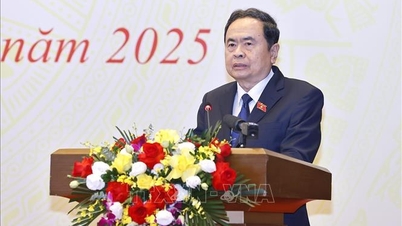





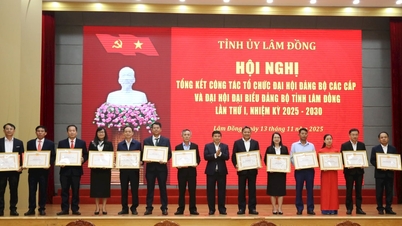



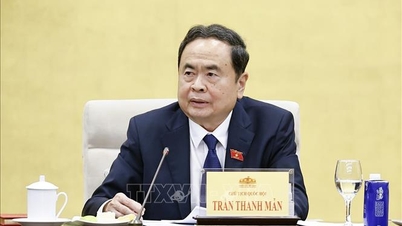
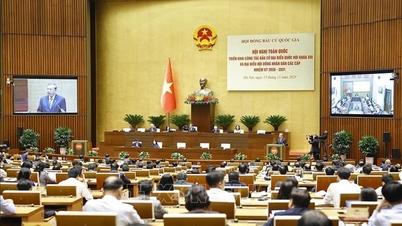


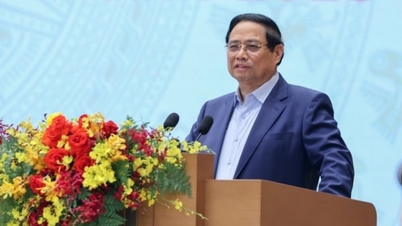









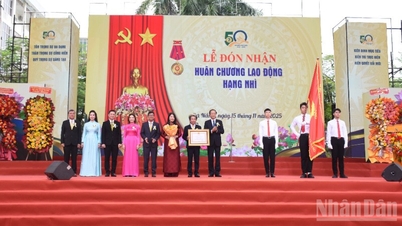
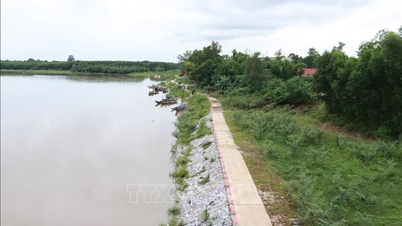
















































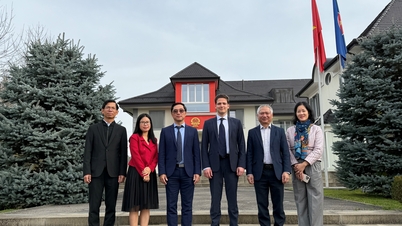



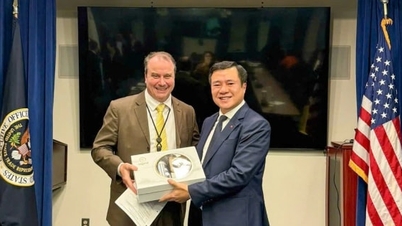
















Comment (0)